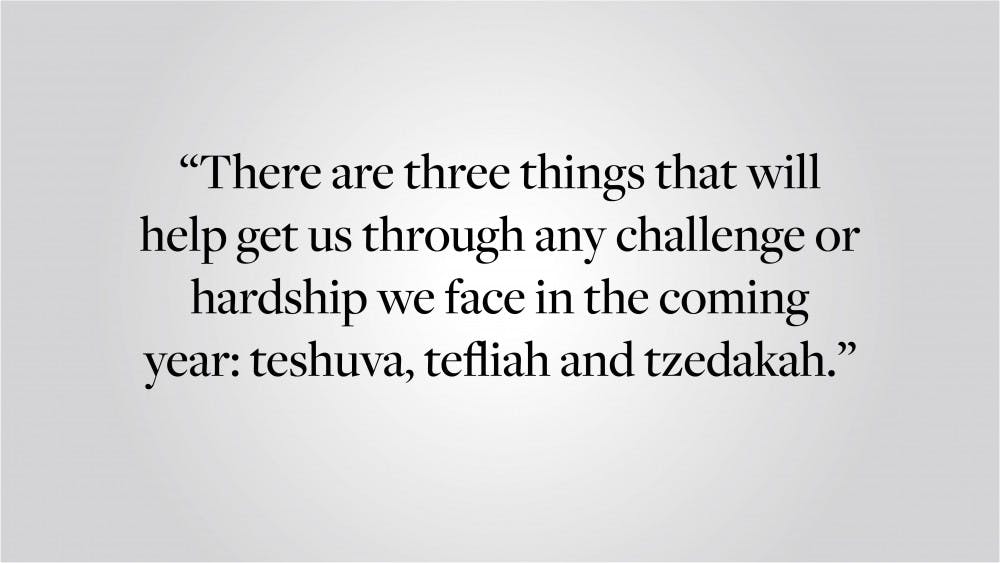Elijah is my favorite biblical prophet; he’s got fire and he’s got pain — like all of us. When his fears threaten to snuff out his fire, he runs away — like we sometimes do. God finds him hiding in a cave and, quite literally, calls him out (if you’ve got God hang-ups or anthropomorphism isn’t your thing, please try and stick with me anyway; as I wrote elsewhere , God is a spectrum!).
“What are you doing here, Elijah?” God asks. Elijah doesn’t have a convincing answer and even God’s voice doesn’t move him. The truth is that he’s filled with self-doubt; he’s lost touch with how powerful he is and how many blessings he has. We can relate.
To wrench Elijah from his funk, God pulls out all the stops. The Book of Kings describes it this way: “There was a great and mighty wind, splitting mountains and shattering rocks by the power of God; but God was not in the wind. After the wind, an earthquake; but God was not in the earthquake. After the earthquake, fire; but God was not in the fire. And after the fire, a still, small, voice. And when Elijah heard it, he wrapped his face in his mantle and went out, and stood in the entrance to the cave.”
We too have faced, or seen images of, devastating winds, earthquakes and fires of late. We know there’s something terribly wrong on our planet. But these natural disasters aren’t necessarily stirring us to meaningful action. Why not? Because they’re a bit too much to bear. Our hearts and senses are so overwhelmed with the magnitude of the suffering around us that many of us go numb.
This is where the shofar (ram’s horn) comes in. We hear its blasts on each day of the month leading up to Rosh Hashanah and 100 times on the holiday itself. Its piercing notes are meant to shake us out of our stupor. But like with Elijah, it’s not the dramatic sounds themselves that will catalyze or comfort us, but rather what comes next. This is why an allusion to Elijah’s story appears at the climax of the Rosh Hashanah and Yom Kippur liturgy, in the prayer known as the Unetane Tokef (the “who shall live and who shall die” prayer).
Just before listing off all the terrifying fates that may await us in the coming year, the prayer proclaims that “a great shofar will be sounded and a still small voice will be heard.”
It seems the answer to the question of “what you are doing here” — of how we can overcome our self-doubt and most meaningfully realize our blessings — resides in the still small voice. Not in the whirlwinds, but inside us. Great, you might be saying, but how do we access that voice? The prayer offers an answer to this too.
The prayer’s author declares that there are three things that will help get us through any challenge or hardship we face in the coming year: teshuva, tefliah and tzedakah, commonly translated as “repentance,” “prayer” and “charity.”
I translate teshuva (with its Hebrew root, lashuv, “to return”) as “returning to oneself” and I understand it as about reaching inward. I translate tzedakah (with the root tzedek, meaning “justice”) as “acts of justice” and I understand it as about reaching out to others. Tefilah, the word meaning prayer, is sandwiched between teshuva and tzedakah, because it is the key to moving from one to the other. Tefilah is what allows us to move from being inwardly focused (teshuva) to outwardly focused (tzedakah). It’s about reaching for “The Beyond,” whether that be God, the universe, the power that makes for salvation, whatever gives life meaning. While prayer might feel like merely moving our lips, if it manages to rouse our hearts, prayer can help us to change both ourselves and the world.
Does any of this help? Does it make you feel you can take on the coming year? If not, let me say it another way. These three tools, offered by the prayer as walking staffs for courageously navigating what’s to come, can also be powerfully mapped onto the three relationships at the core of our existence: our relationship with ourselves, our relationship with “The Beyond” and our relationship with fellow human beings. The shofar — and the entire season for which it affords the soundtrack — is meant to trigger the still soft voice inside of each of us, whispering: You’ve got this, someone or something’s got you and we’ve got each other.
Elijah’s story in the Book of Kings concludes with God telling him to lekh shuv l’darkekha, get back to your path.
The sounds and stories we hear on these Days of Awe are designed to help us do the same, to live bravely into our destinies by returning to faith in ourselves and turning to one another as well. I hope we’ll all find time and quiet during these days to hear the soft but insistent voice reminding us that: We’re already amazing and have got what it takes to make an impact on the world in unique ways; that we are held and loved in ways that we’ll never be able to understand, but can hopefully be blessed to feel; and that we’re in this together.
We’re all we’ve got. And we’re a lot.
Rabbi Michelle Dardashti is in her ninth year as associate University chaplain for the Jewish Community at Brown University and Rabbi at Brown RISD Hillel. She can be reached at rabbi@brown.edu, in her office at Paige Robinson or at Hillel. Please send responses to this opinion to letters@browndailyherald.com and op-eds to opinions@browndailyherald.com.





